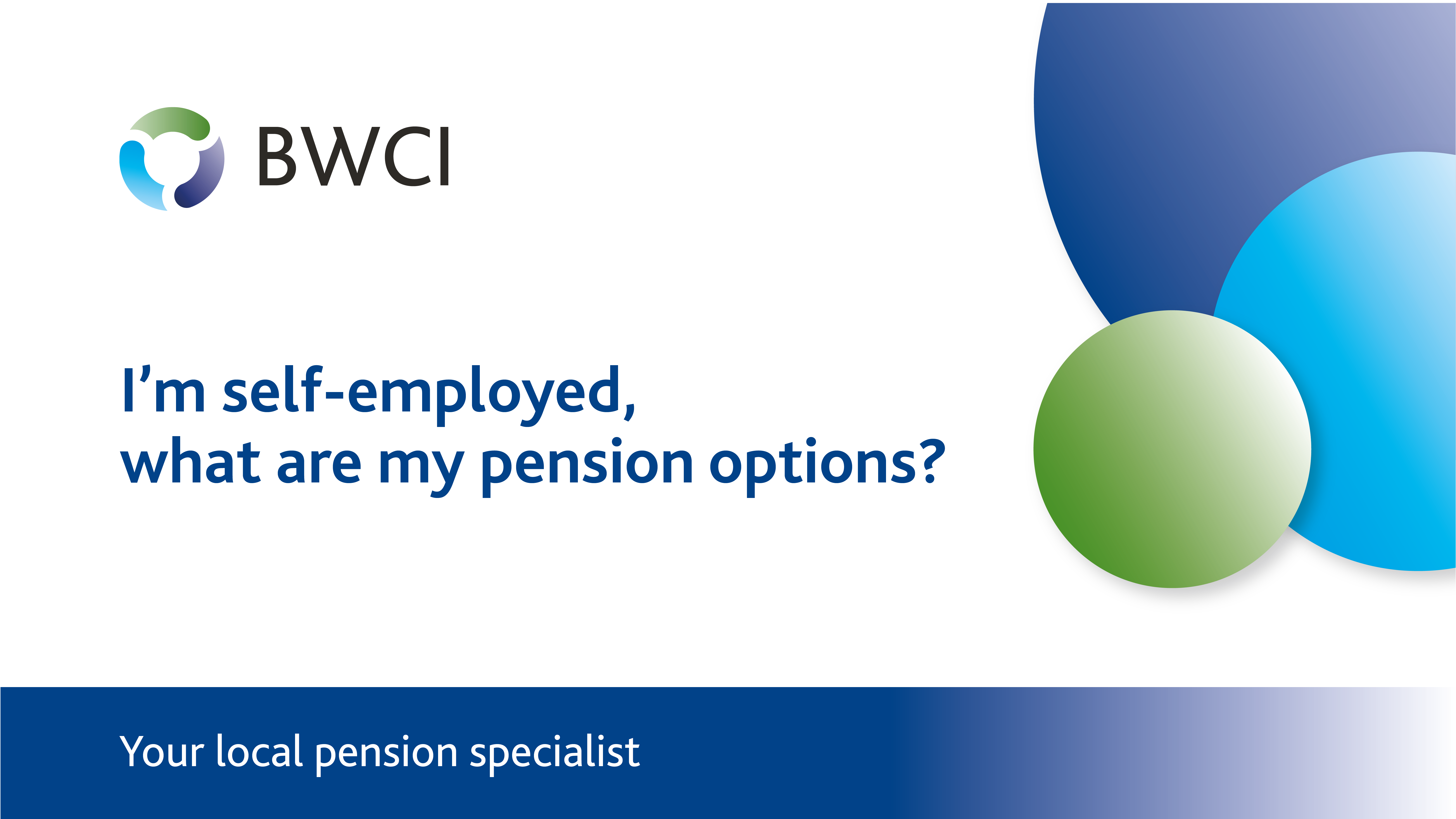
by John Martin
(Please contact John on 01481 728432 or email john.martin@bwcigroup.com
if you wish to discuss this article or anything relating to secondary pensions).
The attractions of a self-employed lifestyle are well-known – turn your passion into work, get a strong sense of fulfilment, set your own hours, take time off when you like, forget about the commute, and just be the boss. However, the cons are also pretty obvious – long hours, no holiday or sick pay, and no employer contributions into a pension.
There is currently a gulf between the retirement funds of self-employed people and employees especially with the forthcoming requirement for employers to auto-enrol their staff into a workplace pension. The self-employed are at risk of slipping through the pensions net, and the reasons for this are severalfold.
Why are the self-employed more likely to shun pensions?
Firstly, one of the biggest obstacles to saving for retirement as a self-employed person is that it requires initiative, effort and time. Money has to be set aside, complexity overcome, the type of savings vehicle has to be determined, and a provider found.
In comparison, employed people with workplace pensions have their retirement savings on autopilot and they don’t really have to think or worry about it. The self-employed are often so busy with the day-to-day running of their business, that they neglect to dedicate time to setting up a pension.
Another challenge is that some self-employed people tend to have unpredictable income that varies from month to month, along with additional expenses that employees don’t have. It can feel counterintuitive to lock away money that can’t be accessed for several decades. What happens if the business goes insolvent or work suddenly dries up?
Self-employed people will often tell you that their business is their pension, and they will sell up when the time comes. They may also prefer to reinvest spare money into the development of the business.
Then of course there’s the problem of affordability. A big barrier for the self-employed is that they don’t get employer pension contributions. These contributions make pension saving more advantageous for employees.
In short, there are plenty of understandable reasons why the self-employed are more reluctant to save into pensions. Retirement planning can be challenging for anyone, and for self-employed people this is especially so.
However, even with all these hurdles, any pensions expert will still recommend that self-employed individuals ensure that they have a pension. It is the best way to safeguard against a fall in living standard on stopping work. Having a pension means that all the eggs are not in one basket i.e. your business.
Remember that if you become bankrupt or your business goes into liquidation, your pension is ring-fenced and safe. While they don’t get employer contributions, the self-employed are entitled to valuable tax incentives from the States of Guernsey.
What options do self-employed savers have?
1) Get ready to save
Before signing-up for a pension, organise your finances so that you can afford to save. This means establishing a cash emergency fund which might include three months of living and business expenses. After that, decide on a percentage that you want to contribute to your retirement savings, and set up a standing order.
2) States pension
The social safety net is a lot less safe nowadays and with States pension age progressively increasing to age 70, a States income is further distant. The current set up means today’s workers pay the States’ pensions of the current pensioners. However, this system no longer corresponds with the near future’s demographic reality in Guernsey where we have a significantly ageing population. Relying solely on the States pension is unlikely to mean a fulfilling and comfortable retirement.
3) Private pension
A personal pension is the best way to plan for a happy retirement where you can enjoy the fruits of years of labour. As always, the younger you start the better. Flexible payments can help the self-employed so that they can decide what and when they contribute and to maximise tax relief.
A personal pension will normally charge an annual fee. Fees do tend to be slightly higher than those for workplace pensions.
If you’re self-employed we hope that this article has convinced you about the importance of retirement savings. You don’t need an employer of a financial advisor to start a pension, you can do it yourself and it’s as easy as opening a bank account. It is possible to do work you enjoy and save positively for retirement.
Trustee and Administration services are provided through BWCI Pension Trustees Limited, which is regulated and licensed by the Guernsey Financial Services Commission under The Regulation of Fiduciaries, Administration Businesses and Company Directors, etc. (Bailiwick of Guernsey) Law, 2020.

